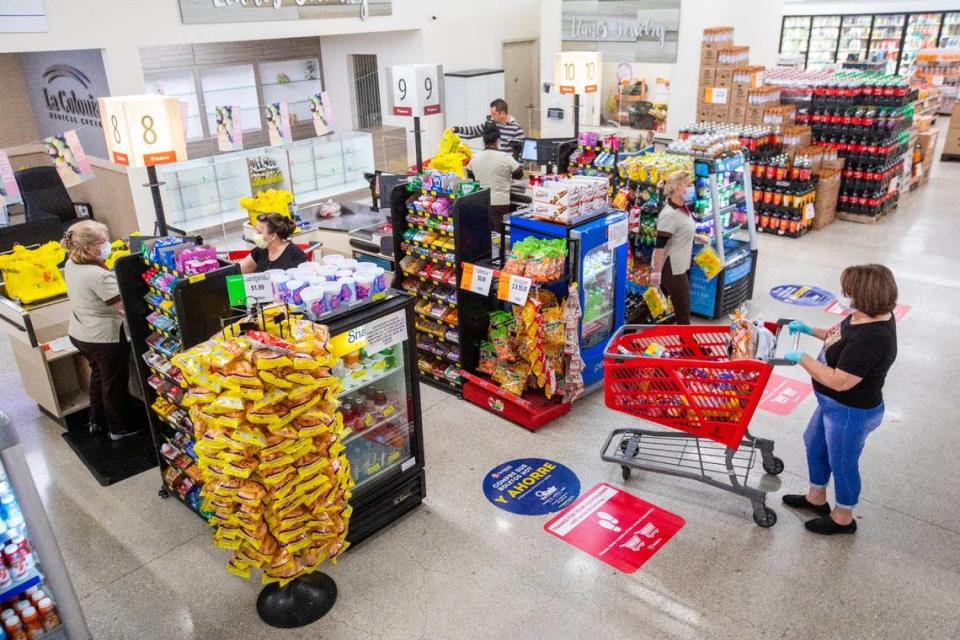Florida is last state to apply for federal summer food aid. $820 million on the table.

In a reversal, Florida announced on Tuesday it would tap into $820 million in federal food aid money for children in low-income households.
After weeks of saying the money wasn’t needed, Florida’s Department of Children and Families said it is applying for the no-strings-attached funding after all.
That means parents of up to 2.1 million children could receive $375 to pay for food for each child over the summer.
The shift came after months of urging from advocacy groups and food banks, who noted that children are hungrier in the summer. A U.S. Census Bureau survey of Florida households from June and July found that 14% of adults reported that their kids were not eating enough because the household could not afford food.
Florida was the only state not applying for the pandemic relief program, according to the U.S. Department of Agriculture.
The program was created by the federal government last year to alleviate a problem the pandemic caused: How do kids get their free and reduced lunches when schools are closed?
The government created a workaround: deposit money onto electronic cards for parents to buy food for their children.
Federal program extended, but Florida didn’t apply
Florida applied for the program during the 2020-21 school year. But when the federal program was extended through this summer, Florida didn’t apply.
A spokesperson for Gov. Ron DeSantis, Christina Pushaw, said last month the money wasn’t needed because schools had shifted to in-person classes.
“Schools are not remote in Florida, and children receive nutrition directly from schools,” she wrote in an email to the Herald/Times.
The federal money was available for those kids regardless of whether they have returned to in-person classes, according to federal guidelines.
In announcing the change to apply for the money, a Department of Children and Families spokesperson criticized Agriculture Commissioner Nikki Fried, a Democrat running to challenge DeSantis’ reelection next year.
Fried has criticized the DeSantis administration’s refusal to apply for the program, calling it “unconscionable.”
Florida Dept. of Agriculture also has summer food program
Fried’s office also operates a separate summer food program known as BreakSpot, which provides meals to children during the summer. The federal aid program is different from BreakSpot. While BreakSpot provides meals, the Pandemic Electronic Benefit Transfer Program sends cash for meals and is administered by the Department of Children and Families.
Department of Children and Families spokesperson Mallory McManus said the office was now applying for the federal money “out of an abundance of caution ... to make certain that any possible gaps left by Commissioner Fried’s program will not affect children.”
“The Florida Department of Agriculture and Consumer Services, run by Commissioner Fried, is the agency charged with ensuring summer nutrition for students while schools are on break,” McManus said.
A Fried spokesperson noted that the two summer programs are unrelated but said that her BreakSpot program added 1,400 more meal sites this summer and delivered 18.5 million meals, at least 2.5 million more than in average years.
Regardless of the dispute, Democrats and advocacy groups praised the decision to apply for the money.
“Florida FINALLY applied for the [Summer Pandemic Electronic Benefit Transfer] program,” Rep. Anna Eskamani, D-Orlando, said on Twitter. “Advocacy works y’all!!”

 Yahoo Finance
Yahoo Finance 